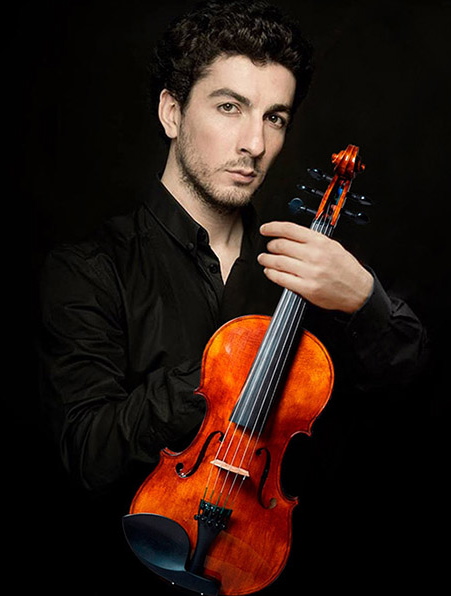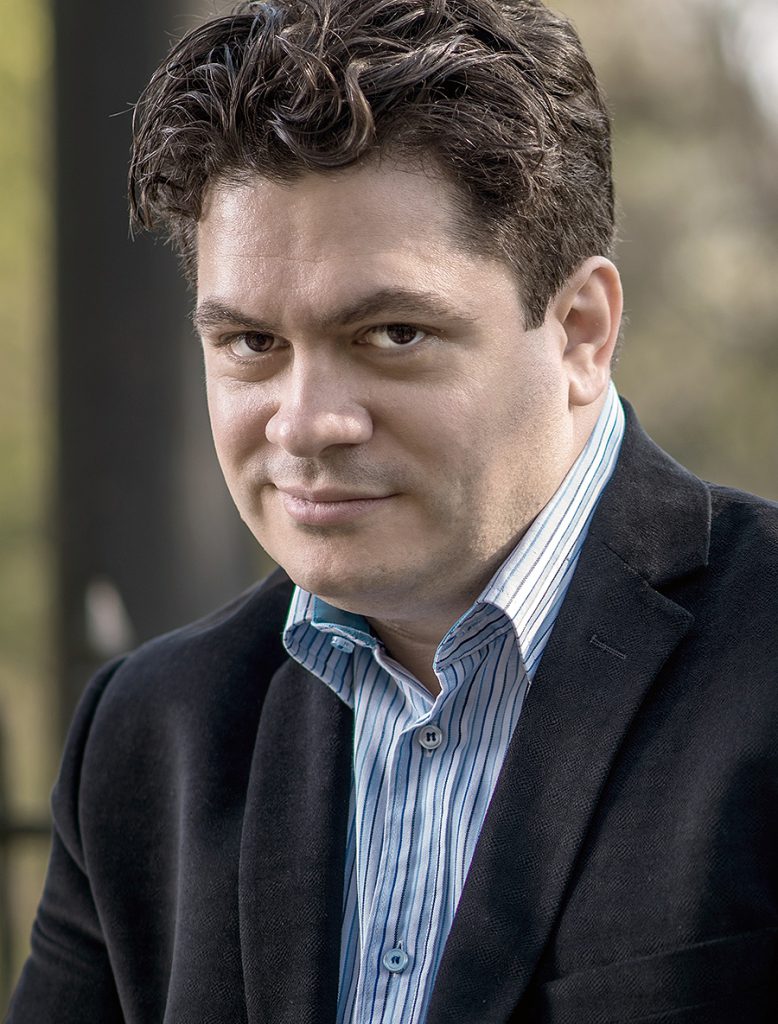Khachatryan delivers deep and individual Beethoven with NSO

Sergey Khachatryan performed Beethoven’s Violin Concerto with the National Symphony Orchestra Saturday night.
Since he took first prize at the Queen Elisabeth Competition in 2005, Sergey Khachatryan has been providing excellent performances in Washington. In his latest local appearance, as soloist with the National Symphony Orchestra, the Armenian violinist, now 32, seems to have broken into new musical territory. As heard on Saturday night in the Kennedy Center Concert Hall, his take on Beethoven’s mammoth Violin Concerto, was neither familiar nor standard.
The first movement had a relaxed quality reflecting its tempo marking, Allegro ma non troppo–fast enough for a display of Khachatryan’s technical prowess and yet never rushed. From the first solo entrance Khachatryan applied plenty of rubato, taking time to explore the corners of each phrase with a melting legato tone. An excellent example was how he stretched the pedal point section leading to the recapitulation. This set up a triumphant orchestral restatement of the main theme, masterfully coordinated by guest conductor Cristian Măcelaru.
Khachatryan opened the throttle a bit in the long cadenza, fluttering breathlessly through the fast runs. His ability to make polyphonic lines in double-stops sound as smooth, utterly independent voices was extraordinary. That rarest of things, a completely silent audience, leaned in to listen.
The tempo for the Larghetto seemed at first too slow for the marking, but the delicate spiderweb woven by Khachatryan on his E string made a convincing case. As in the first movement the pacing was fluid, as Măcelaru moved the NSO forward to compensate. For an orchestra with at least seven principals sitting out, the NSO played with remarkable unity and subtlety.
Khachatryan took the finale in the same spirit, at Allegro rather than Presto as it is too often heard, and infused with rustic joy. In addition to more stunning double-stops in this cadenza, Khachatryan added some flourishes to the last third of the solo part. The audience demanded an encore and the soloist replied, with the Sarabande from Bach’s Solo Violin Partita No. 2, rendered with exceptional beauty.

Cristian Macelaru
The rest of the program, focused on the sounds of water, felt tepid by comparison. Măcelaru struggled to give life to The Oceanides, a rather gorgeous tone poem by Sibelius. The NSO last played it in 2008, under Vladimir Ashkenazy, who is a much more convincing conductor in this repertoire. Măcelaru’s focus was on defined articulations, concentrating on the froth of the waves rather than the sea’s surging vastness, and its murky masses of tone colors, surges and swells. The brass approached the idea most closely with their weighty sound in the final crash of the sea.
In the middle of the second half came Liquid Interface, a piece by Mason Bates commissioned a decade ago by Leonard Slatkin and the NSO. The work is centered on electronica contributed by the composer at his laptop, including sounds of glaciers and rushing water, as well as a clunky rhythm track in three of the movements. Bates hits some pleasant grooves, especially in the “Scherzo Liquido” movement. But framed by master orchestrators like Sibelius and Smetana, Bates’ writing and cute effects seemed even more banal, with tuned water glasses, washboard, harmonica, slide guitar, and other oddities.
Smetana’s “Vltava,” the movement depicting the river also known as the Moldau from Ma Vlast, completed the picture. Măcelaru again seemed to zero in too much on the details in the famous opening section, but the orchestra gave a dance-like lilt to the second section and shining delicacy to the conclusion.



Posted Apr 24, 2017 at 11:07 am by John C
Interesting that Khachatryan didn’t play an encore on Thursday, despite the audience’s rapturous ovation. Perhaps because he was going to do a post-show conversation?
Posted Apr 27, 2017 at 9:11 pm by grrr
“For an orchestra with at least seven principals sitting out, the NSO played with remarkable unity and subtlety.”
As one of the lowly non-principals, I have to say that I find comments like these extremely irritating, even though this particular example contains a compliment (backhanded as it may be). Why is it so shocking to you that the orchestra doesn’t fall to pieces if all the principals aren’t on stage?